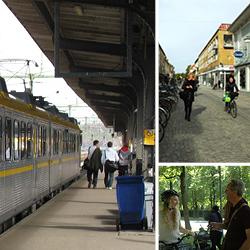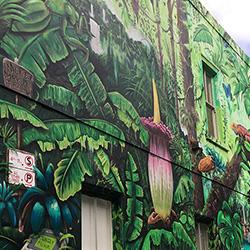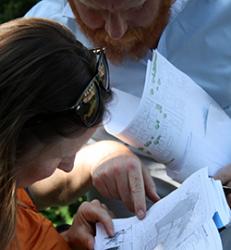
Socially sustainable urban planning and development - A knowledge overview
The social dimension of sustainable development is placed high on the agenda on both at a local, regional and national planning level. At the same time, there is a lack of clarity in what the concept of social sustainability means in practice in for example urban and transport planning processes. Therefore there is a great need and potential for cooperation.
By developing a common knowledge basis, concepts and approaches, and by testing and evaluating methods and procedures there is an opportunity to narrow down and follow up the work on social sustainability in a more structured way. This may in turn lead to substantiated and well-thought through decisions that favour justice and inclusive municipalities and regions.
”Knowledge and tools for social sustainability”
The project builds on results from the Divides City project where one of the conclusion is there is a need for more knowledge and tools in order to ensure that community planning at the local and regional level really leads to reduced spatial inequalities. The knowledge among officials and politicians need to be strengthened, both in terms of understanding the importance of how we plan and build, but also to improve the communication with other stakeholders such as the business sector, the civil society, citizens and authorities.
The project also builds on KAIROS (Knowledge about and Approaches to Fair and Socially Sustainable Cities). The conclusions of the KAIROS project are formulated in different "synvändor" (change of mindset – to think and act differently). Based on broad co-creation, KAIROS aims to inspire politicians, officials, private actors, associations, researchers and citizens to work for the for the societal change that is needed for a fair and socially sustainable development.
Knowledge overview – first step
The results from the Divided City and KAIROS project will feed into the writing of a knowledge overview on the subject. The overview will be a first step and the aim is to build on that and set up a full-scale project. It will be produced together with municipalities, local authorities/sub-regions and regions, authorities and research actors, with the aim to identify what we know at present and estimate what the continued work with achieving social sustainability through transport planning, urban planning might look like.
The knowledge overview will map the state of art and experiences, methods and tools within the urban and transport planning field, nationally in Sweden and internationally, though a literature overview and interviews with different stakeholders.
The knowledge overview will seek answers to following questions:
1. What does social sustainability in urban and transport planning and other planning processes mean, at local, regional and national level? What aspects and definitions are there?
2. In what way are these aspects integrated in planning and development processes, such as urban and regional planning, transport planning, planning of houses etc.? What methods, analysis and policies are being used and how? What indicators are being applied in these processes and what consequences do different methods, analysis and policies have?
3. What are further needs of knowledge within academia and practice? Is there a need for new methods or ways of collaboration?
The knowledge overview is expected to be completed in autumn 2017.







